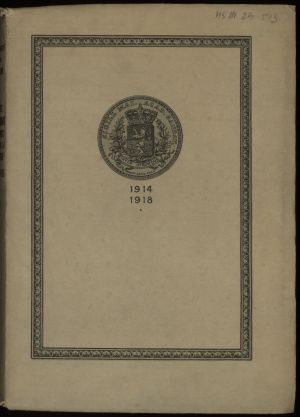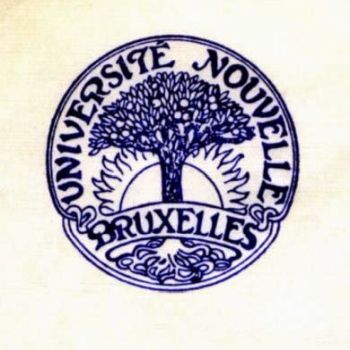Those who gave their lives for an ideal of justice, those who died for the law, have left the survivors a legacy that must not be made up solely of contempt and hatred. Paul Héger, Academic opening session of the Free University of Brussels, January 21, 1919. Confronted with the magnitude and violence of the mass death caused by the Great War, the deep trauma that ensued drove society towards an irrepressible need to mourn and remember those lost. Mourning is an intrinsic part of the war experience. It is present from the outset of combat and continuing after the war, and is a bond that unites combatants and non-combatants in the loss of a son, husband, brother, or “comrade”. Its expression is multifaceted : it tends topour lire la suite…
Tag: Brussels
A space to maintain law education in Brussels : the New University
The German invasion in August 1914 was soon followed by the occupation of most of the country. The context of war and occupation was an obstacle to the resumption of classes : many of the professors and students had either fled or joined the military. . In Leuven, the sack of the city, the massacre and the fire of the university library represented major obstacles. In Liège, the ransacking of the university’s premises prevented any resumption under “normal” conditions. These circumstances led the four universities of Belgium at the time, the State Universities of Liège and Ghent and the Free Universities of Brussels and Leuven, to close their doors. At the Free University of Brussels, the start of the new academic year, scheduled for October 14,pour lire la suite…


